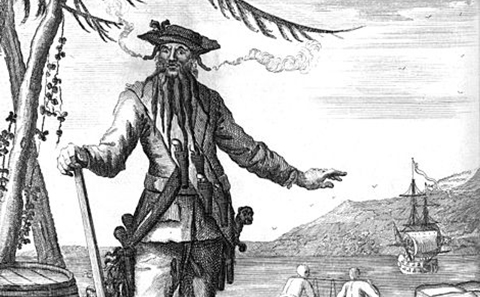
Why are pirates called 'pirates'? Because they arrr!
Arrr matey, it's International Talk Like a Pirate Day today – but, where did this day come from? And how do pirates really talk?
Stephanie Jones, Professor of English at the University of Southampton, has dedicated part of her career to researching pirates and piracy. She shed some light on the questions.
Talk Like a Pirate Day falls on 19 September. It began in 1995 when two Americans, John Baur and Mark Summers, started the tradition as an inside joke and its popularity has grown since then.
"It's a spoof day – but there is so much more to pirates than 'arrr'," said Professor Jones. "There are lots of debates about what a pirate sounds like, especially during what's sometimes referred to as the 'golden age' of piracy in the late 17th to early 18th century. Some argue that 'Anglo-American' pirates of that time might have sounded more like imperial lawyers than vagabonds. Others say they were fighting for equality and against racism, and spoke like revolutionaries. And these days, a pirate might sound like a Somali seafarer who has lost their livelihood."
So where does the 'arrr' that we associate with pirates originate?
Professor Jones, who is writing a book about piracy and stories of freedom, and has taught a module to English Literature undergraduates entitled 500 years of Pirates and Piracy, explained: "The stereotypical 'arrr' suggests a West Country accent. While we know of many pirates who came from this part of England, novels and films of the 20th and 21st centuries have really played-up the association of pirates with this regional accent."
"Today's popular culture image of the pirate – Captain Jack Sparrow, for example – tracks back to 19th century literature, when adventure books for boys were emerging as a new literary genre – the most famous of which is Robert Louis Stevenson's Treasure Island."
This novel features the iconic character, Long John Silver, who has a wooden leg, a parrot, and hails from Bristol.
"While we know that Stevenson drew upon earlier texts and stories, this novel and the extraordinary number of adaptions of Treasure Island—for film and for stage, from Muppet Treasure Island to the National Theatre's recent adaptation—are a key source of the 'arrr' and 'pieces of eight' and 'dead man's chest' pirate of popular imagination," added Professor Jones.






